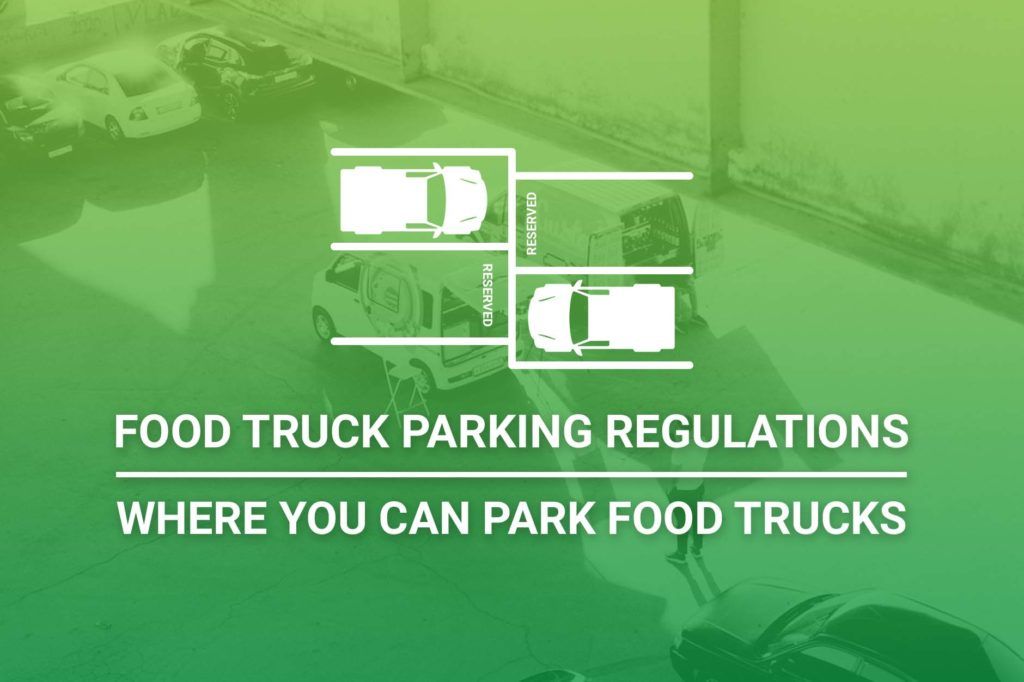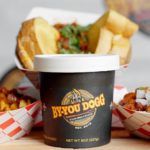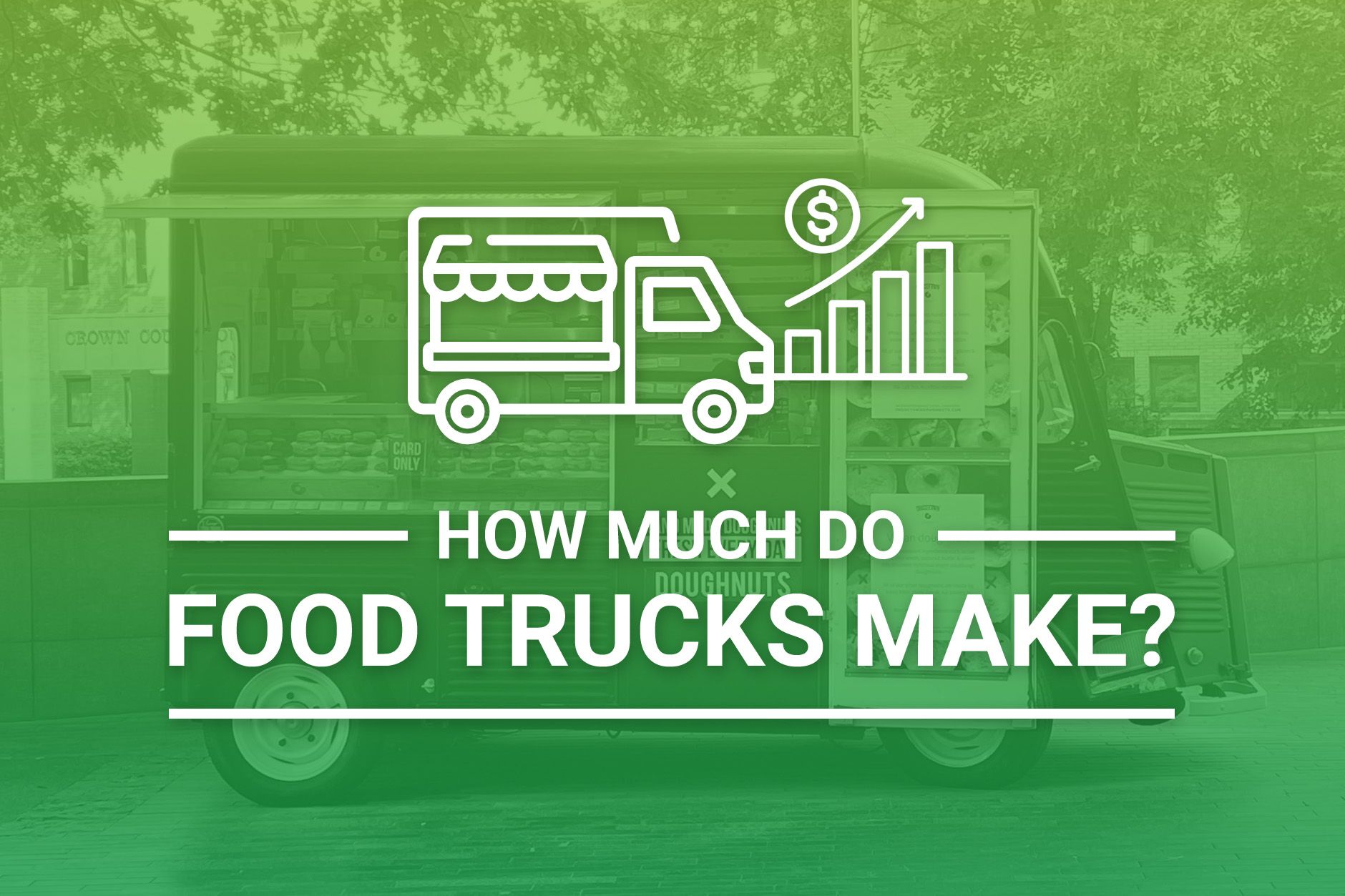A food truck can be a great way to break into the food and beverage industry. It typically costs less to start a food truck, compared to a brick-and-mortar restaurant. Having a food truck also means that you can move to take advantage of things like festivals, events, or even things like the lunch rush near office buildings.But just like any food-related business, there are a lot of regulations when it comes to running a food truck. This includes parking, as you generally can’t just park wherever you want. There are typically strict local ordinances about where food trucks can operate, which is why any food truck owner should check these laws before making a decision about where to park their food truck.
At Budget Branders, we understand how challenging it can be to run a small business, from figuring out the best sources for your inventory to complying with local regulations. Our goal is to make it as easy as possible to get custom-branded products for your restaurant, food truck, or other hospitality business. Whether you need branded plastic cups, custom napkins, custom paper bags, custom soup bowls, custom dessert bowls, or custom deli containers, we have the products that you need to help your business thrive.
First Rule of Food Truck Parking: Check Local Laws
When it comes to parking your food truck, the most important thing to remember is that you can’t just park wherever you want. Doing so could lead to costly tickets – and may even result in your food truck license being revoked.Each city and town has different rules when it comes to where food trucks can park and when they are allowed to operate. Food trucks have to follow the same parking rules as any other vehicle. For example, they can’t park in front of fire hydrants or bus stops, and can’t block crosswalks or accessible sidewalk entrances. Food trucks also usually have to park with the window facing the sidewalk for customer safety.
Beyond these basic rules, many communities have additional restrictions on food trucks. This may include getting a parking permit and only parking in commercial areas (as opposed to residential). Many cities also limit how close food trucks can park to traditional restaurants to avoid food trucks undercutting these businesses.
Cities and towns may also impose other restrictions based on the specific needs of the community. For example, Columbus, Ohio recently enacted an ordinance that will require food trucks in a particular area of the city (the Short North) to close at midnight. This law – which also applies to bars and restaurants – was passed in an attempt to curb violence in this neighborhood.
Other cities are just getting around to regulating food trucks more tightly. In Milwaukee, there was little regulation about when and where food trucks could operate. A proposed ordinance would allow food trucks in two different zones that have different rules about where food trucks can park and when they can be open for business.
These two examples highlight the importance of checking local regulations. Parking rules are an inherently local issue, and there might be significant variation from one town to the next. Before you park your food truck anywhere, it is important to understand the legal landscape so that you don’t lose money on parking tickets and fines.
Will I Need a Parking Permit for My Food Truck?
Many communities require food trucks to have special parking permits, in addition to other licenses that they may be required to obtain. To get a parking permit, you will usually need to fill out an application and pay a fee. The permit will then tell you where you can park your food truck and when you are allowed to operate your business. It may also specify whether you can leave your food truck there overnight.The process for obtaining a food truck parking permit will vary by locality. In some cities, there are a limited number of food truck permits per zone, so it may take longer to get approved. In other towns, getting a permit will just be a matter of submitting the right forms. In some places, you won’t need a permit at all.
When you write a business plan for your food truck, parking should be one of the issues that you address. After all, if you will be fairly limited in where you can operate – or if it will take months to get a parking permit – then it will affect your bottom line. You should always check with local officials to understand the requirements before you move forward with your food truck plans.
Best Places to Park a Food Truck
One of the biggest advantages that a food truck has over a brick-and-mortar restaurant is that you aren’t limited to operating in one place. This allows you to move to where the business is, whether that’s an area with a lot of nightlife or outside of a stadium or theater. Once you have your permits squared away and understand the rules that apply to food truck parking, you can come up with a plan for where to park it.The best parking spots for food trucks will depend in part on what you’re selling. For example, ice cream trucks will probably do more business near a playground or youth sports fields than outside of a bar or club. Similarly, if you offer healthy fare like salads, then your best bet will probably be to operate near office buildings or in a busy downtown area.
Some places to consider parking your food truck include:
- Office parks or other spaces with commercial office buildings
- College campuses
- Sports stadiums
- Theaters
- Beaches or lakefronts
- Playgrounds or parks
- Youth soccer, baseball, or football fields
- Downtown areas
The above examples will typically involve parking in a public area. However, food trucks often do a lot of business at private property and special events. This can often be more profitable than just parking at a public space and hoping for business, as there is usually a built-in customer base.
Ideas for private event food truck parking include:
- Weddings, birthday parties, and other events;
- Catered events, such as an employee appreciation day;
- Night markets
- Food festivals
- Cultural events
- Farmer’s markets
- Homeowners’ Association (HOA) events
- Medical campuses
You may also be able to collaborate with local businesses that may want to offer food for a special event or even on a regular basis. For example, many breweries don’t have a dedicated kitchen, so their patrons may order out or leave to go get food. Brewpubs often deal with this issue by featuring food trucks each weekend. This benefits both businesses, as the breweries get to keep their customers there – and the food trucks get a prime spot to park and customers who want something to eat with their libations.
Similarly, many college campuses work with food truck owners to provide a greater diversity of food offerings for their staff and students. They might invite food trucks to park on or near green spaces for special events, or even incorporate food trucks into their meal plans. If you are opening a food truck in an area with one or more colleges or universities, consider reaching out to find out if you can park and operate there.
Wherever you park, make sure that it is legal to do so. If it’s on public property, you will need to make sure that you have the appropriate permits and have paid for parking (if necessary). If you are on private property, make sure that you are allowed to be there, whether by invitation or because you have a contract with the owners.
Where Can I Park My Food Truck After Hours?
Another question that many food truck owners have is where they can park their trucks when they aren’t doing business. Some entrepreneurs are lucky enough to have ample parking at their own homes. If you fall into this category – and you aren’t prohibited from parking a commercial vehicle in your residential neighborhood – then that is usually the easiest solution.If you don’t have dedicated parking at your home, however, then you will need to figure out another plan. You might be able to park on a public street with the right permits, but this can raise safety concerns. After all, you have probably poured quite a bit of money into your food truck – the last thing that you want is for vandals or thieves to ruin your food truck.
In this situation, your best option will usually be to pay for parking. Ideally, this would be in a secured lot with some sort of video monitoring. However, you may also know someone with space at their house or business to park your truck or have another solution in mind. The important thing is that your food truck is in a safe location and that it is parked legally.
Opening a Food Truck? Budget Branders Can Help.
There is a lot that goes into running your own food truck. In addition to having a great menu, sourcing your ingredients, and having the right products for your customers to take food with them, you also have to worry about things like permits and parking. Thinking through these issues before opening up for business can improve the likelihood that your food truck will be successful. At Budget Branders, we are proud to partner with food trucks across the nation to get them the custom paper cups, custom sandwich bags, custom wax deli paper, custom stadium cups, and more that they need. We offer all of our products in quantities that make sense for food truck owners – and at prices that fit within your budget. Using branded disposable products for your food truck is a great way to stretch your marketing budget, as your customers will do your advertising for you.
If you’d like to learn more or to request a quote, contact us today by pressing the live chat button, or sending us a message online.
The information disclosed above does not constitute legal or financial advice. Use this information at your own discretion.





















